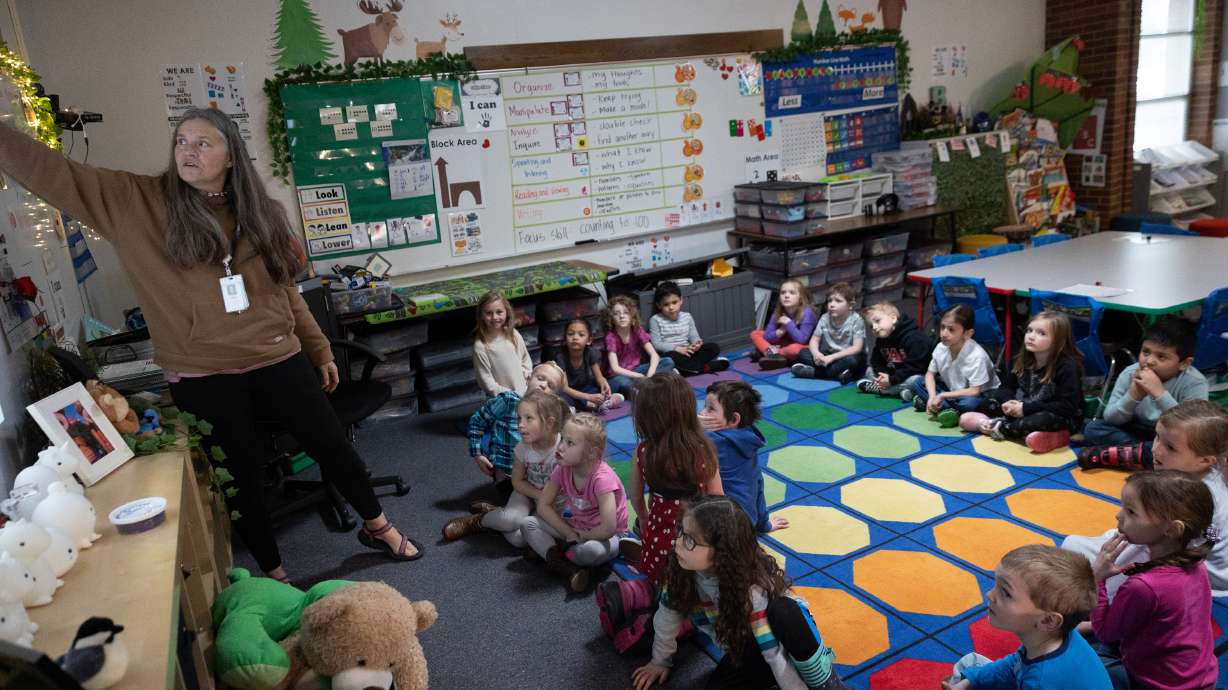Estimated read time: 2-3 minutes
This archived news story is available only for your personal, non-commercial use. Information in the story may be outdated or superseded by additional information. Reading or replaying the story in its archived form does not constitute a republication of the story.
SALT LAKE CITY — The Beehive State has seen a dramatic increase in the number of families participating in full-day kindergarten since the Utah Legislature passed HB477 in March.
The bill expanded access to full-day kindergarten in Utah schools, though kindergarten remains optional for Utah families and some schools have continued to offer half-day programs for families that do not want a full-day experience for their 4-, 5- and 6-year-olds.
Data from the Utah State Board of Education shows 77% of enrolled kindergartners are enrolled in the full-day option this year, a sharp jump from the 34% that were enrolled in full-day or extended-day kindergarten before the new law passed to allow it.
"It is exciting to see how many families now have the opportunity to choose half-day or full-day kindergarten in almost every area of the state," said Sara Wiebke, early learning coordinator for the Utah State Board of Education.
In several districts — including Grand, Emery and Daggett — 100% of kindergarten students are participating in the full-day option.
Before the passing of HB477, the bill's sponsor, Rep. Robert Spendlove, R-Sandy, said Utah had the lowest percentage of students in the nation who have access to full-day kindergarten. Nationwide, eight in 10 students have access to full-day kindergarten, compared to three in 10 in Utah prior to HB477 expanding access.
Educators and lawmakers alike laud the effectiveness of full-day kindergarten in jumpstarting academic success for students. Wiebke said state-level data indicates the reading scores of students in full-day kindergarten are two to four times higher than peers attending half-day kindergarten or extended-day kindergarten.
Other studies have shown students in full-day kindergarten are less likely to need academic intervention in later grades, and also tend to progress in mathematics and reading at higher rates than their half-day kindergarten peers. The extra hours afforded in a full-day model also allow more time for learning from a broader range of academic disciplines.
Additionally, full-day kindergarten provides an opportunity to identify learning challenges early on. If a student is struggling with a specific skill or concept, a teacher has the time to provide that student with extra support.
"It takes 15-30 minutes over a short amount of time to close a learning gap in kindergarten, compared to 90 minutes to 3 hours a day over a long period of time to close a learning gap in third grade," said a release from the Utah State Board of Education.
As of October, nearly 35,000 Utah families have opted for full-day kindergarten for their students, with only 23% of students enrolled in the half-day option. According to the bill's fiscal note, initiating the option cost the state $97 million — increasing the weighted pupil unit for kindergartners — and began this school year.
"We have seen a great demand for full-day kindergarten in Utah and we are glad that the state has invested in providing this option for Utah families," said Sydnee Dickson, state superintendent of public instruction.









